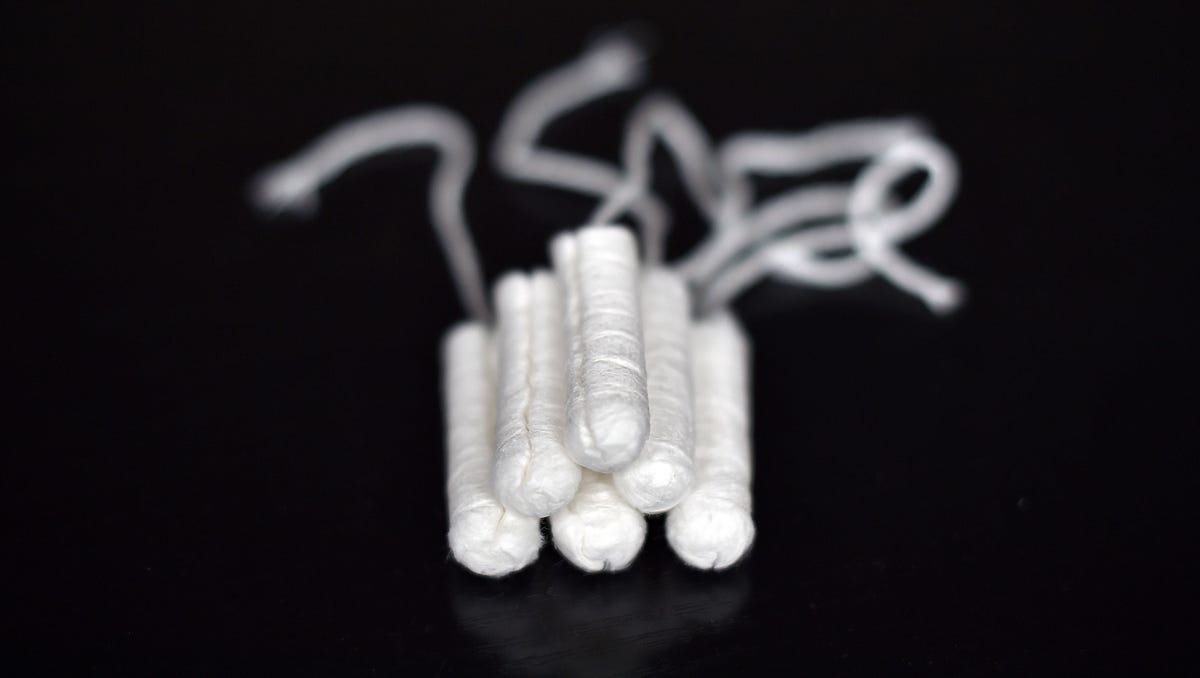LATEST FINANCIAL NEWS
‘We absolutely need this’: Michigan lawmakers consider bipartisan push to end ‘tampon tax’
DETROIT — No one should pay a tax to buy tampons or other feminine hygiene products, argue Republican and Democratic sponsors of legislation debated Tuesday in the Michigan House of Representatives.Similar legislative efforts have failed in the past, but a pair of bills filed this year may actually earn enough support to do away with the so-called “tampon tax” in Michigan. There isn’t a specific tax on these products, but the bills would make feminine hygiene products exempt from the 6% sales and use taxes. “We don’t buy these products because we want to — trust me, we don’t,” said Rep. Tenesha Yancey, a Democrat, a sponsor of one of the bills. “We don’t buy these products because they are convenient. We buy them because we need them. From puberty, which can begin as early as 8 years old, to menopause, menstruation spans the vast majority of our lives, every single month. We absolutely need this.” Both bills define feminine hygiene products as “tampons, panty liners, menstrual cups, sanitary napkins, and other similar tangible personal property designed for feminine hygiene in connection with the human menstrual cycle.” Period poverty: New Zealand schools will offer free menstrual products. Where is the US on period equity? Far behind, experts say.Yancey is the lead sponsor of HB 4270, a measure to exempt the products from use tax. It is cosponsored by essentially every other Democrat in the House. State Rep. Bryan Posthumus, a Republican, is the lone sponsor of HB 5267, the bill to exempt these products from sales tax. “When this legislation gets pigeonholed into a partisan legislation, or when it gets pigeonholed into a gender-specific legislation, that’s close-minded thinking. It doesn’t take into account the actual ramifications of what we are trying to do here,” Posthumus said. “And so I brought this legislation forward as a male Republican strictly because I wanted to take those arguments out of it … it’s not a partisan issue, it is not a gender issue. It is commonsense legislation that we should be pushing forward with, no question.” The House Tax Policy Committee did not vote on the bills, but Committee Chairman Matt Hall, a Republican, said he anticipates voting on the measures at the committee’s next meeting. The bills are tie-barred together, a legislative procedure that ensures if one bill fails, they both do. “Republicans believe in tax cuts. And there are a lot of aspects of this tax cut that relate to people, some of which have difficulty with their financial situation, so we found some areas we can agree,” Hall said.Making some room: This Tennessee woman-led company is taking on period industry with sustainable hemp tamponsHall said lawmakers planned to change the effective date of the legislation. Right now, the bill would take effect Sept. 30. They plan to change the bill so that the measure would take effect 90 days after it’s hypothetically signed into law. “We’ve waited so many years, so 90 days won’t hurt us,” Yancey said. Yancey noted that similar bills have been introduced every year for the last six years. Michigan is not the first state to weigh removing these taxes: eight states did away with these taxes between 2016 and 2020, according to a House Fiscal Agency legislative analysis. Advocates of the measure argue it makes a vital product more accessible to everyone and removes an unfair tax burden that generally falls on women. Period Equity, a national organization aiming to end all taxes on feminine hygiene products, estimates that states collect approximately $120 million annually from taxes on these items. Its analysis appears to comport with the fiscal agency’s prediction on the impact the bill would have on Michigan: Both suggest Michigan receives about $7 million annually in taxes from feminine hygiene products. “Many in the U.S. are forced to make a terrible choice between buying food or menstrual products. Those who are unable to afford tampons and pads are at risk of isolation, infection, and even missed days of school and work,” reads a portion of the organization’s website. Related story: ‘Tampon Tax’ lawsuit against Michigan aims to end sales taxes on menstrual hygiene productsThe organization helped three Michigan women file a lawsuit against the state in 2020, arguing the tax is sex-based discrimination. However, in June, the Michigan Court of Claims ruled against the women, as noted in the fiscal agency’s legislative analysis. “The court stated that ‘only the Legislature may impose tax or exempt items from taxation’,” the analysis states, citing a recent newsletter from the Michigan Department of Treasury. “This legislation aims to do just that.” Some have questioned the efficacy of repealing taxes on these products. One study examined point-of-sale data for these products in Illinois from four large retailers after the state repealed its sales tax on feminine hygiene products. This analysis, conducted by Ziyue Xu and discussed in a piece from the University of Chicago Booth School of Business, determined prices for these products rose slightly while sales dropped. “It’s just not that efficient economically,” Xu told the university for a piece published earlier this year.“Getting rid of the tax is having economic repercussions that seem to provide some minimal benefit to retailers and manufacturers, but there’s no evidence to suggest it’s creating more access in those segments of the population where the need is greatest.”The measures would need to pass the full House and the Senate before they could be enacted into law. Follow Dave Boucher on Twitter: @Dave_Boucher1.
Source link









